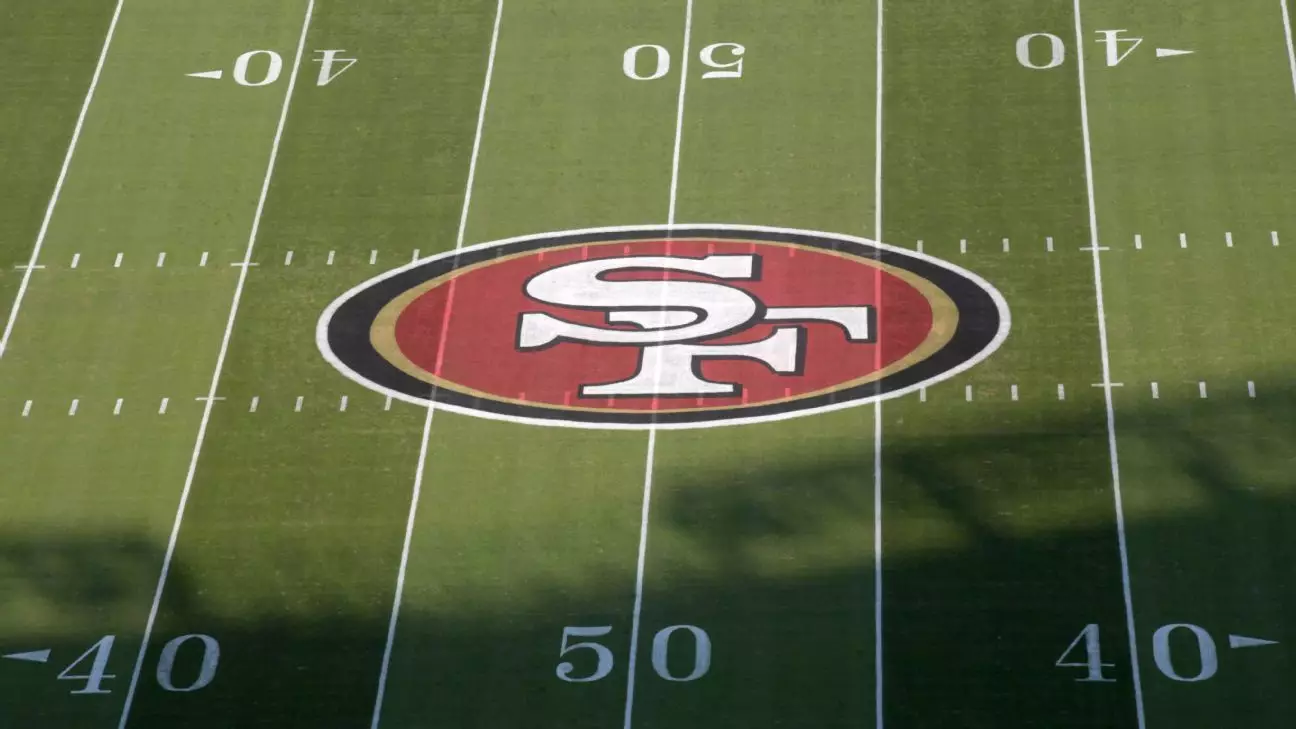In a landscape where sports franchises are no longer mere teams but considerable business entities, the San Francisco 49ers are at the forefront of a revolutionary business decision. Recent reports indicate that the York family, owners of the franchise, have been actively considering a partial sale of their stake in the 49ers, which could redefine the team’s operational dynamics. This shift not only underscores the growing financial stakes in professional sports but also reflects the meticulous planning that awaits the franchise’s future.
With Jed York openly admitting that potential buyers have been approaching his family “probably on a weekly basis,” the interest surrounding the 49ers has never been more pronounced. The revelation that the team is working towards selling over 6% of its ownership to three prominent Bay Area families sheds light on a strategic financial maneuver aimed at both injecting fresh capital and bringing in partners who understand the business’s intricacies.
Details of the Deal
According to credible sources like Sportico, prospective buyers include the Khosla, Deeter, and Griffith families, with their plans to acquire shares translating into significant capital for the Yorks. Valuing the franchise at a staggering $8.5 billion, this transaction—should it go through—will secure the 49ers’ place in the annals of sports history as one of the largest franchise valuations recorded.
The Khoslas’ intention to buy 3.1%, the Deeters’ 2.1%, and the Griffiths’ 1% interest illustrates a nuanced understanding of strategic partnership, where the buyers are not merely capitalists but also seasoned players in the venture capital arena. Their backgrounds—Vinod Khosla’s roots in the tech industry as co-founder of Sun Microsystems or Byron Deeter’s prowess at Bessemer Venture Partners—signal a shift towards a business-oriented framework that could prove advantageous in navigating the competitive landscape of the NFL.
The NFL’s Approval Process
There is also the critical logistical aspect when such ownership changes occur. The NFL’s formal approval is anticipated to take stage during the spring owners’ meetings in Minneapolis. This avenue for scrutiny not only ensures that all transactions align with league standards but also highlights the rigorous governance surrounding ownership structures in professional sports. Each new partnership will be closely examined for compatibility concerning the longstanding ethics and ambitions of the league, ensuring that the core values remain intact even amid substantial financial evolvement.
The York family remains optimistic yet cautious, with Jed York noting that selling a portion of their holdings reflects a “family asset allocation decision.” It’s clear that while financial incentives drive these aspirations, their approach emphasizes securing the right partners who can contribute value on and beyond the field. This balance between capital gain and harmonious collaboration remains paramount for any team as they navigate financial pressures.
The Broader Context: The Future of Team Ownership
The implications of this prospective sale extend beyond the 49ers—they resonate throughout the league. With the Los Angeles Chargers also looking to sell an 8% stake to private investment firm Arctos, this trend speaks to the increasing need for sports teams to evolve into modern business entities adept at leveraging capital markets. As owners shift their stakes or fully divest, it signals a new era in sports where influence, strategy, and intriguing financial structures may shape the future of beloved franchises.
In this new age of investment, it’s no longer just about the love of the game; it’s about striking the delicate balance of scoreboards and balance sheets, ultimately redefining the very essence of what it means to own a sports team. These transactions mark a pivotal moment where sport meets sophisticated finance, and it’s a transformation that fans and analysts alike cannot afford to overlook. The 49ers’ journey from a traditional sports franchise to a multi-billion-dollar enterprise is not just a compelling narrative but a case study in adaptability and foresight.


Leave a Reply